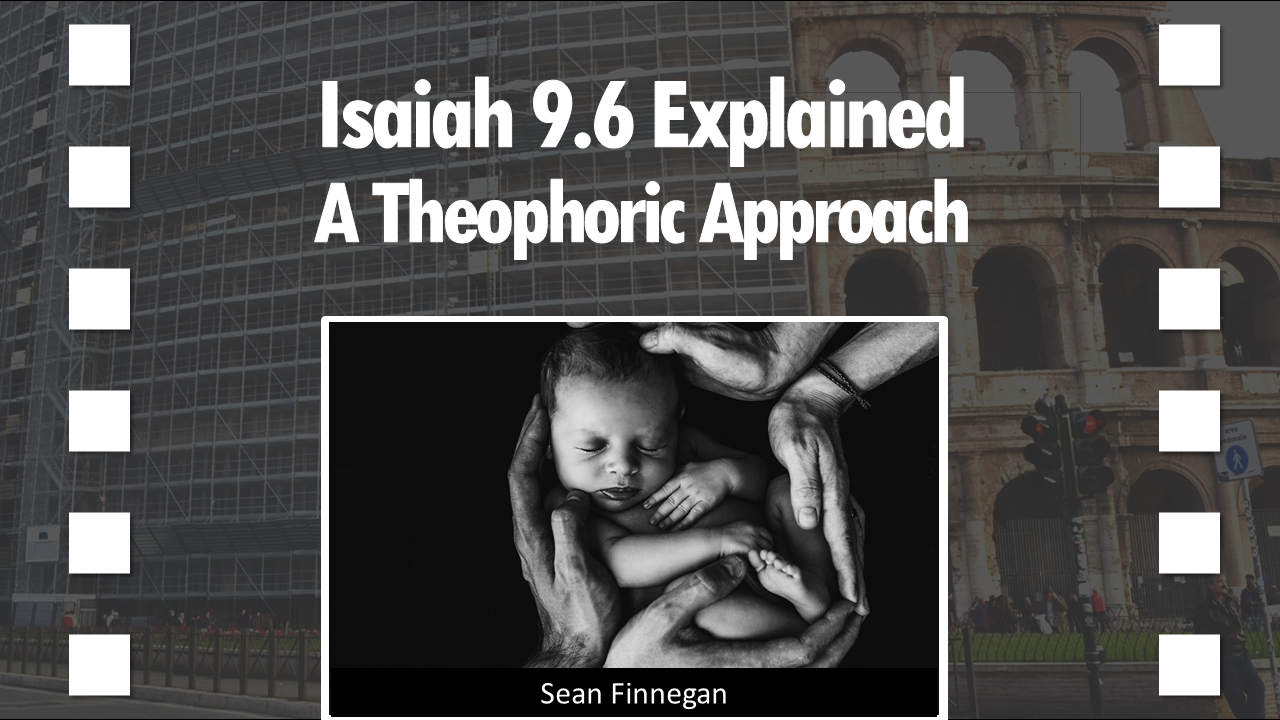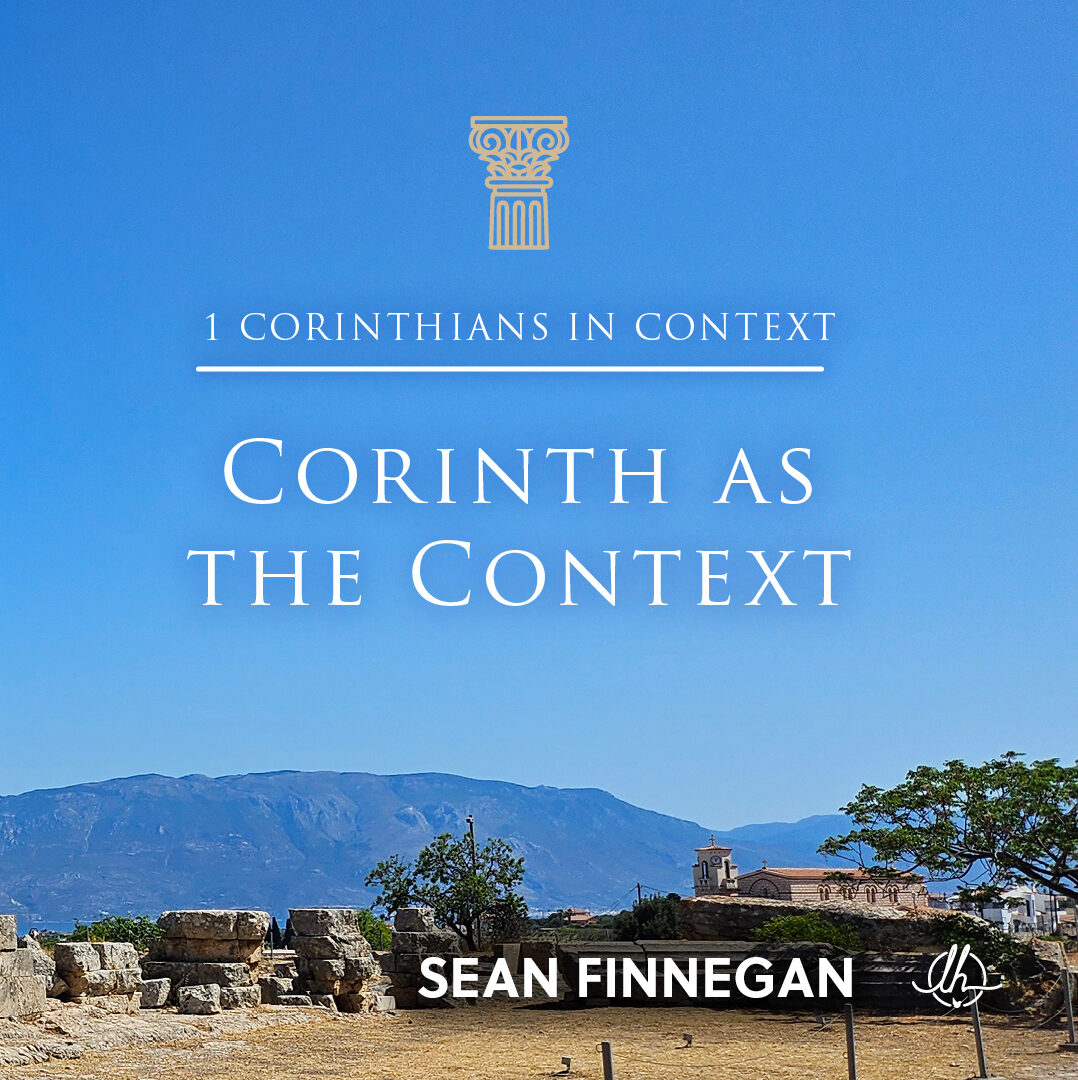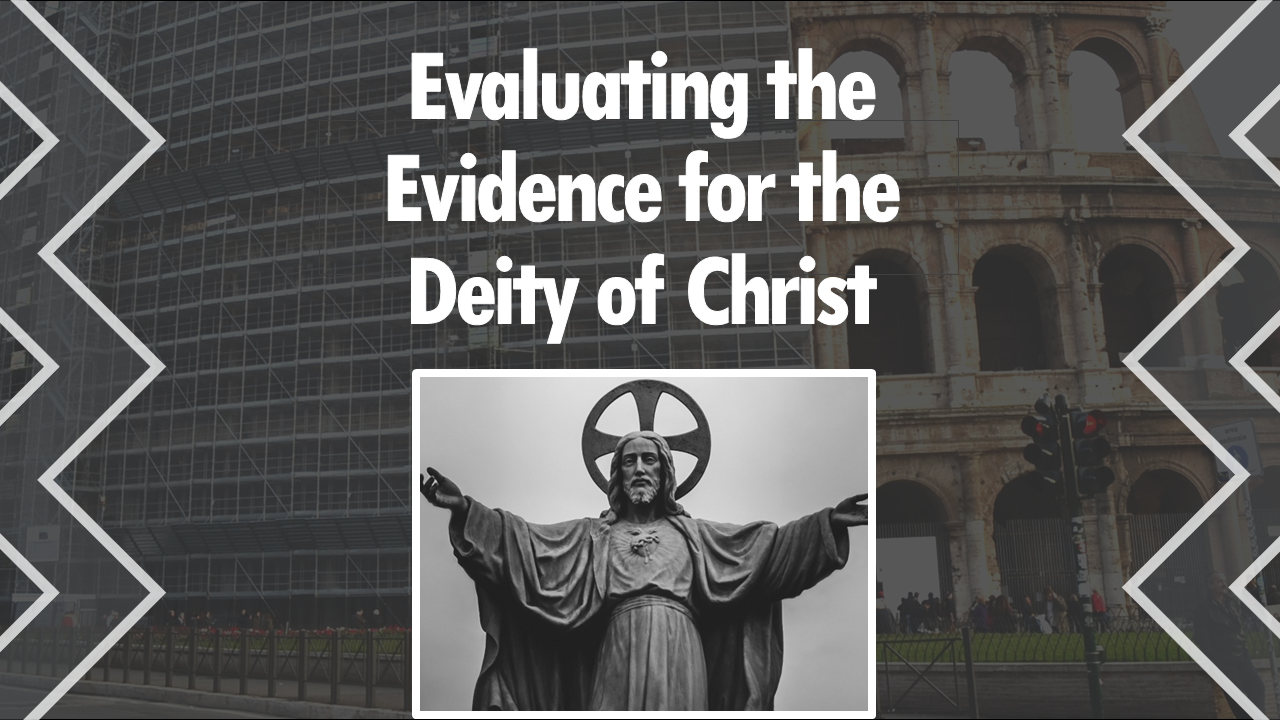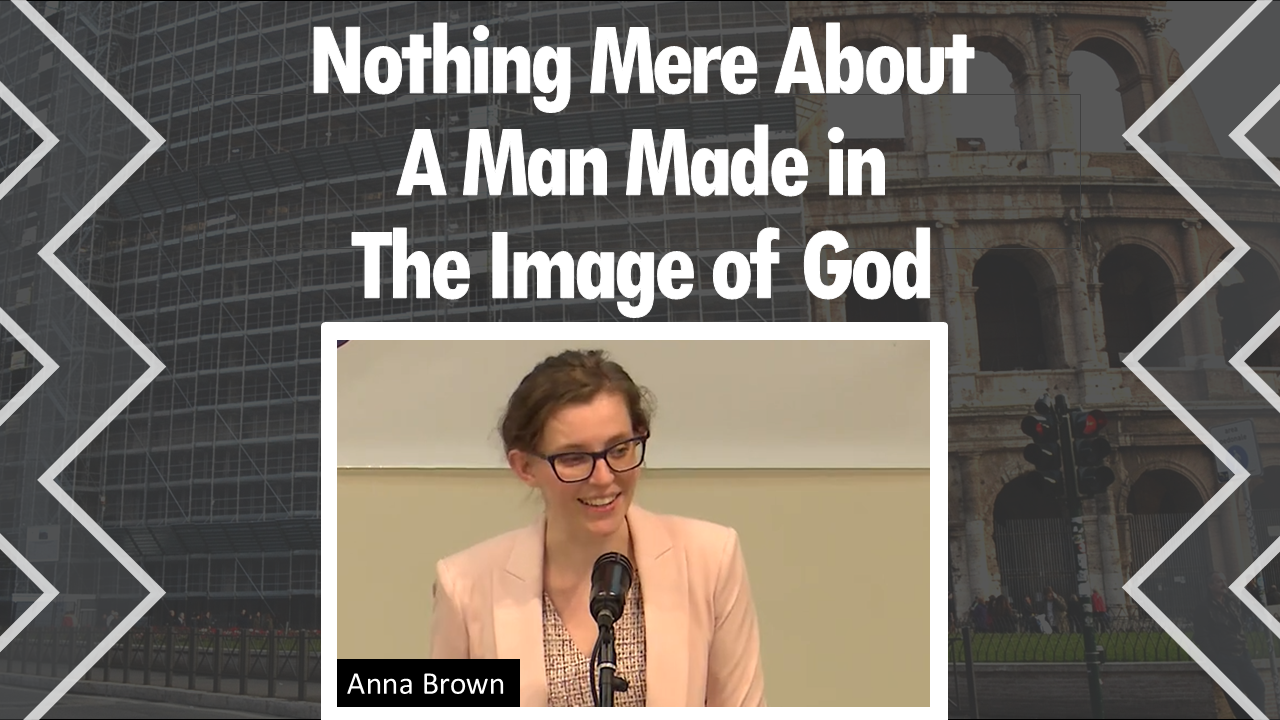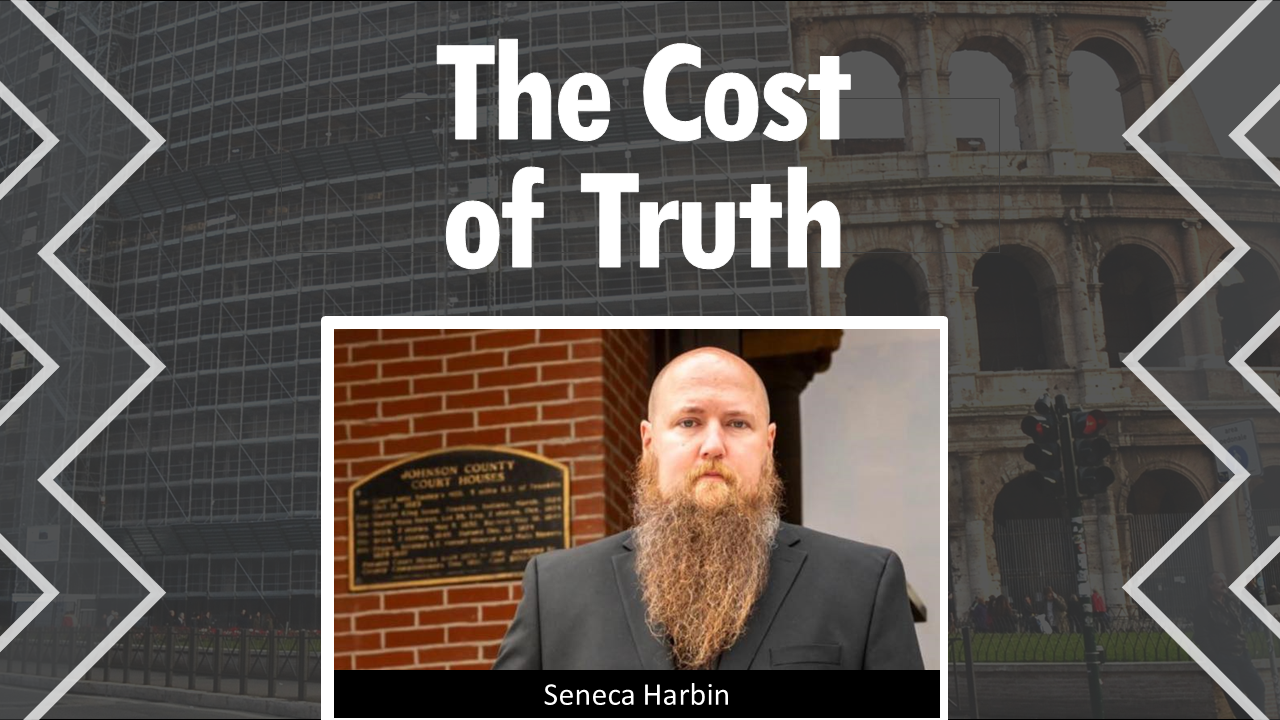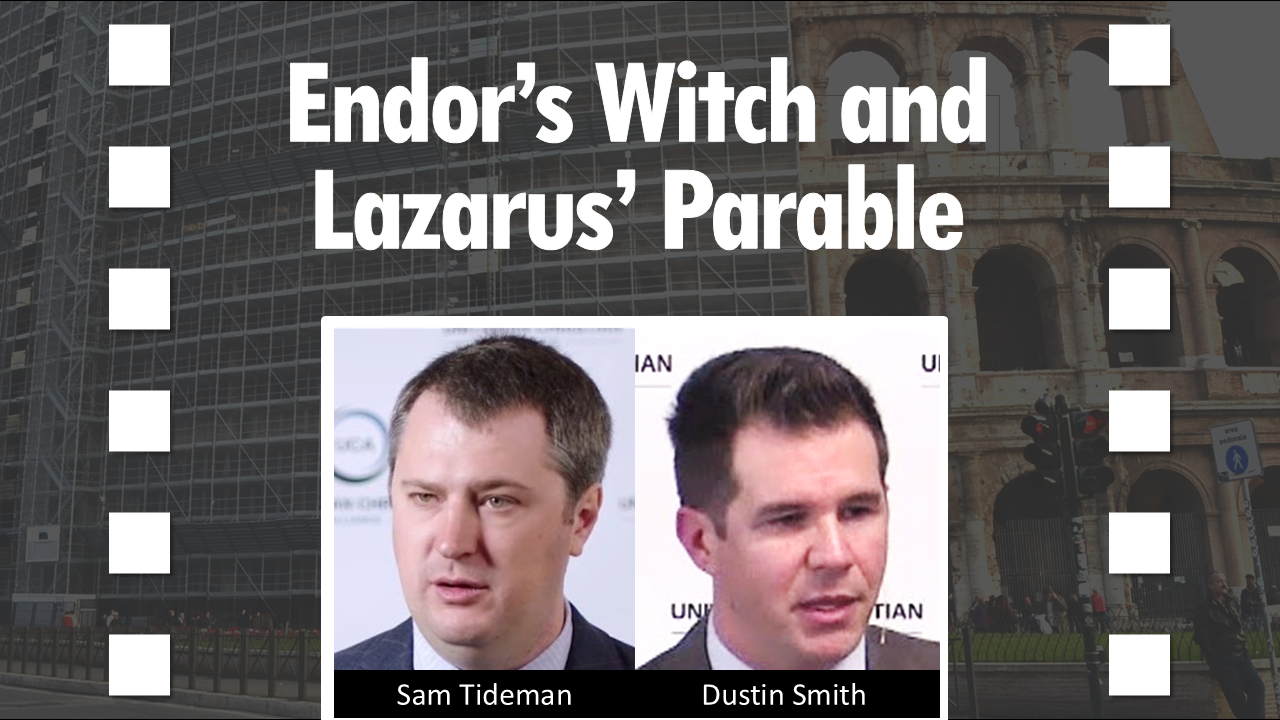572 Isaiah 9.6 Explained: A Theophoric Approach
Description
Comparing the Hebrew of Isaiah 9.6 to most popular English translations results in some serious questions. Why have our translations changed the tense of the verbs from past to future? Why is this child called “Mighty God” and “Eternal Father”? In this presentation I work through Isaiah 9.6 line by line to help you understand the Hebrew. Next I look at interpretive options for the child as well as his complicated name. Not only will this presentation strengthen your understanding of Isaiah 9.6, but it will also equip you to explain it to others.
Listen to this episode on Spotify or Apple Podcasts
—— Links ——
- See my other articles here
- Check out my class: One God Over All
- Get the transcript of this episode
- Support Restitutio by donating here
- Join our Restitutio Facebook Group and follow Sean Finnegan on Twitter @RestitutioSF
- Leave a voice message via SpeakPipe with questions or comments and we may play them out on the air
- Intro music: Good Vibes by MBB Attribution-ShareAlike 3.0 Unported (CC BY-SA 3.0) Free Download / Stream: Music promoted by Audio Library.
- Who is Sean Finnegan? Read Sean’s bio here
Below is the paper presented on October 18, 2024 in Little Rock, Arkansas at the 4th annual UCA Conference. Access this paper on Academia.edu to get the pdf. Full text is below, including bibliography and end notes.
Abstract
Working through the grammar and syntax, I present the case that Isaiah 9:6 is the birth announcement of a historical child. After carefully analyzing the name given to the child and the major interpretive options, I make a case that the name is theophoric. Like the named children of Isaiah 7 and 8, the sign-child of Isaiah 9 prophecies what God, not the child, will do. Although I argue for Hezekiah as the original fulfillment, I also see Isaiah 9:6 as a messianic prophecy of the true and better Hezekiah through whom God will bring eternal deliverance and peace.
Introduction
Paul D. Wegner called Isaiah 9:6[1] “one of the most difficult problems in the study of the Old Testament.”[2] To get an initial handle on the complexities of this text, let’s begin briefly by comparing the Hebrew to a typical translation.
Isaiah 9:6 (BHS[3])
כִּי־יֶ֣לֶד יֻלַּד־לָ֗נוּ בֵּ֚ן נִתַּן־לָ֔נוּ וַתְּהִ֥י הַמִּשְׂרָ֖ה עַל־שִׁכְמ֑וֹ וַיִּקְרָ֨א שְׁמ֜וֹ פֶּ֠לֶא יוֹעֵץ֙ אֵ֣ל גִּבּ֔וֹר אֲבִיעַ֖ד שַׂר־שָׁלֽוֹם׃
Isaiah 9:6 (ESV)
For to us a child is born, to us a son is given; and the government shall be upon his shoulder, and his name shall be called Wonderful Counselor, Mighty God, Everlasting Father, Prince of Peace.
Curiosities abound in the differences between these two. The first two clauses in English, “For to us a child is born” and “to us a son is given,” employ the present tense while the Hebrew uses the perfect tense, i.e. “to us a child has been born.”<a hr

